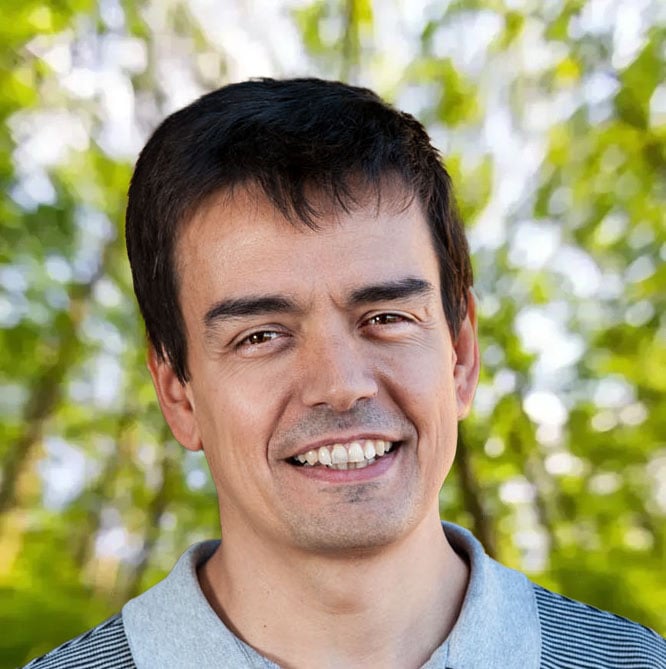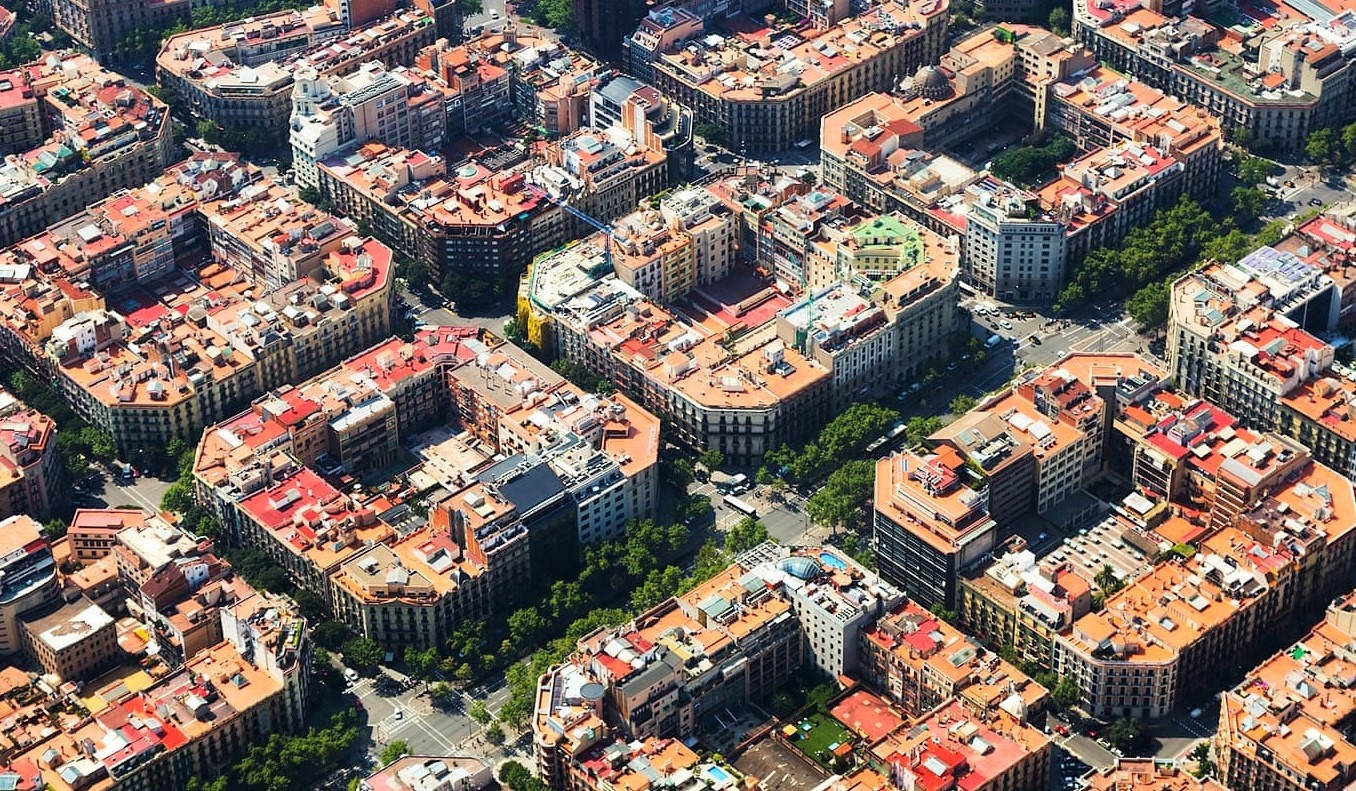The mobile app "De mica en mica s'omple la pica..." consists of the creation of an interactive platform that captures data on energy consumption and offers proposals for improvement to its individual users (neighbours) and collectives (communities and islands). With each of the improvements implemented, a step is achieved for the energy improvement of the building where it has been carried out and for the whole.
The project, in which Zero Consulting has collaborated along with other professionals from different sectors, becomes a finalist in the Illa Eficient Contest and receives the award for the best facade rehabilitation solution.
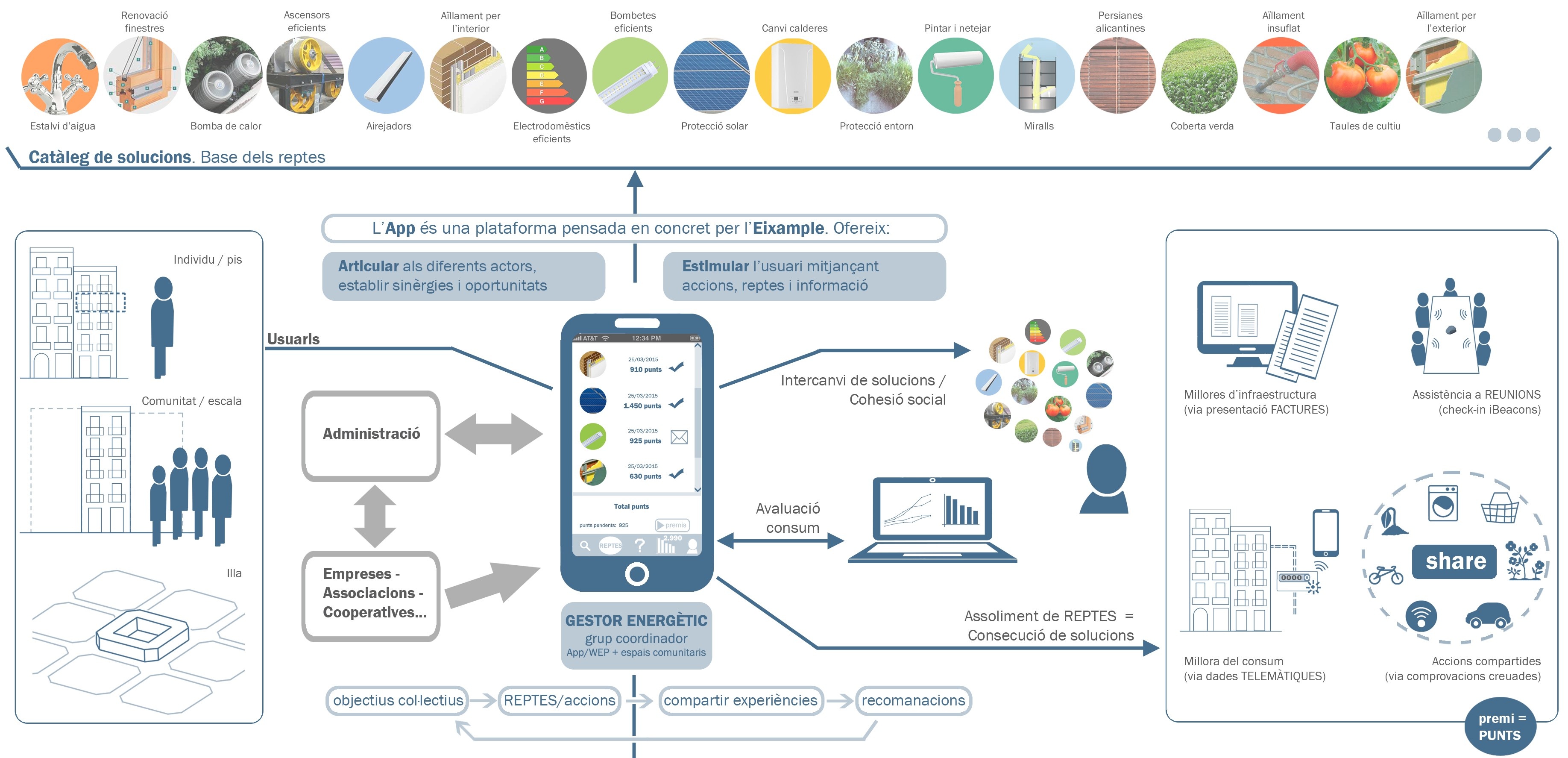
The application is intended as a game for different individuals in the Eixample: mainly homeowners and residents' associations, and other more general audiences such as administrations, companies and associations. All these groups aim to achieve a more self-sufficient Barcelona, with a better quality of life for its citizens and a lower environmental impact.
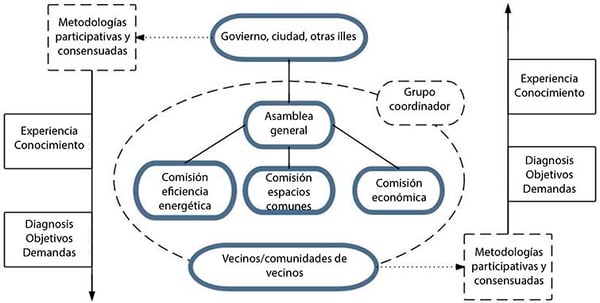
Target audiences of the proposal with their functions and contributions to the platform
Cooperation among users is essential to achieve their participation in the game, as well as the competition between them, which is one of the greatest motivating factors. On one hand, users will have to strive to perform their individual actions, but on the other hand, they will have to collaborate in community actions that will unite them collectively against other groups.
Actions may start with simple acts such as replacing light bulbs in flats with energy-saving bulbs to more complex ones such as changing heating facilities in order to meet the European Directive's target of 80% reduction of primary energy by 2050.
The challenges of the study
Initially, four types of challenges are proposed, which can be expanded in the future:
- Attendance at meetings: the manager validates those present at the meeting via iBeacons in the App.
- Improvement of infrastructures: users will be able to propose actions and carry them out. They will be validated with photos of the installed material and purchase receipts uploaded to the platform.
- Improvement of consumption: over a certain period of time, a certain reduction of energy consumption has to be achieved. The challenge will be validated thanks to the monitoring data.
- Shared actions: users are rewarded for sharing services such as car sharing or sharing household tools. It is validated through cross-evaluations by the two or more users involved.
For completing these challenges, users will receive compensations such as discount vouchers for efficient products, obtained thanks to the collaboration of sponsors and advertising. In this way, we enter a circle in which each challenge achieved allows us to gain advantages in order to reach the next one. In addition, the challenges achieved can be shared on social networks and with other users of the App for social recognition.
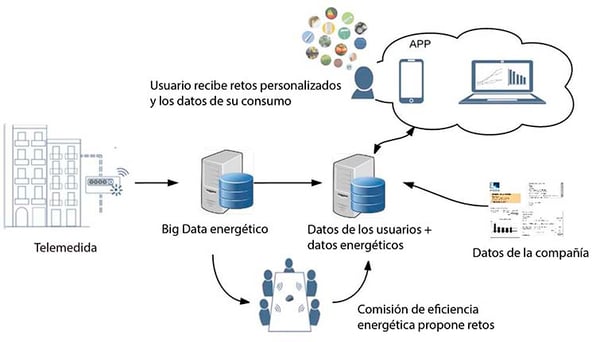
Process of monitoring energy consumption data analysed by the application
To capture the attention of a diverse audience like the people of Barcelona, and to adapt to the particular needs of each group of buildings, a mobile application has been chosen that allows residents and communities to directly decide how to improve their energy efficiency. In this way, they are the true protagonists who take the initiative and control the entire process.
A mobile application is a perfect tool to achieve results in an easy and attractive way, to track the proper process, and to obtain very interesting information remotely and automatically, such as real-time energy consumption. The App offers a wide catalogue of solutions that will be updated in line with the market, in order to always have the best, most efficient and innovative products (boilers, LEDs, insulation, etc.). This catalogue will be adapted to each of the users and their characteristics, with all the necessary explanations for their understanding and implementation.
The project's measurements
All solutions must be approved by the coordination group of each island and adapted for each type of user and their circumstances. The solutions proposed in the catalogue will appear with all the necessary information for their implementation: energy benefits, comparison with other solutions, financing methods, etc. These are some examples of proposals that combined can reduce energy demand by 48%.
- Using the roofs of the buildings to produce electricity from renewable sources: the energy obtained could be used for the community itself or sold to an energy company that manages the space. The money obtained helps to finance other measures.
- Improve the skin of the building: insulation, renovation of windows, shutters, painting, etc.
- Home improvements: replacing conventional light bulbs with LEDs, more efficient boilers, monitoring the extractor hood, changing appliances to A+++ when they need to be replaced, etc.
- Increasing vegetation: terraces and facades covered with plants improve insulation, as well as improving air quality, aesthetics, etc.
- Water-saving measures, promotion of recycling, utilization of common spaces, etc.
Each user will apply the solutions at their own pace using their own funds or credits provided by the bank of their choice, always with an interest rate of up to 5%. This feature provides total transparency to the project, in addition to being very understandable for the owners who are the ones investing and directly receiving the results.
The Administration, for its part, will provide 50% of the money needed through the direct subsidies received by the Programme of Aid for the Rehabilitation of Buildings for Residential Use and Housing in the city of Barcelona. Energy companies or cooperatives can also contribute a part if they operate, in exchange for rent, for example, the electricity production facilities using renewable sources from the rooftops of the buildings.
Another way to finance the project, or at least some of its measures, is the possibility of adding advertising to the platform. Manufacturers of efficient products and nearby installers will be able to offer promotions and special discounts to member users, or simply advertise to make themselves known.
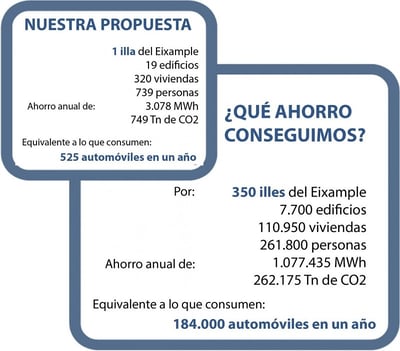
Expected results with the implementation of the proposal
Indirect benefits
De mica en mica s’omple la pica… has a considerable advantage over the other applications to the Illa Eficient competition, as it is not a specific proposal for a single island but can be extended to the whole city of Barcelona or even to more territory. Paying attention to the peculiarities of each area, the extension of the project would greatly increase the competitiveness and motivation of users from all neighbourhoods as they would see the results of others and could compare themselves.
The platform also entails other more indirect benefits: the appreciation of homes that have adopted more measures, the use of the data obtained to create sustainability plans more adjusted to reality or subsidy lines from the administration, etc.
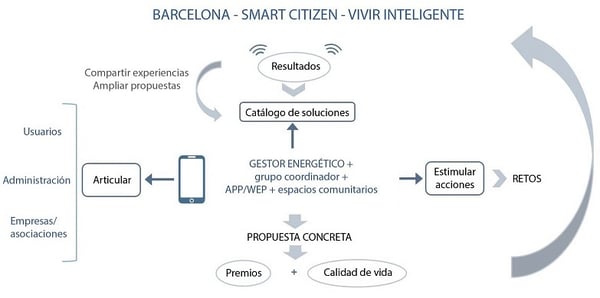
Schematic summary of the application's functionality
DOWNLOAD - ILLA EFFICIENT Report
The project has been carried out thanks to the collaboration of very diverse professionals: engineers, architects, economists, among others. A total of ten people (Andreu Camprubí, Artur Garcia, Jordi Gendrau, Laura Jarauta, Laura Camprubí, Gemma Fernández, Jofre Roca, Pau Borrell, Agustí Jover and Miquel Morell) have worked hand in hand to shape this proposal that we may soon see implemented in our neighbourhoods.
